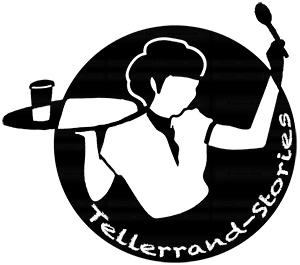Potato scene at a farmer in Upper Bavaria, at the big potato party and at the trendsetters of Caspar Plautz at the Munich Viktualienmarkt.
On a visit to a potato region
The potato is a world star among foodstuffs. Nutritious, easy to prepare, versatile and storable. The first early potatoes are harvested in Germany starting in June. In Bavaria, the potato is then duly celebrated and year after year a queen is placed at the side of the potato. The product queen promotes the local tuber. She is the potato’s advertising pillar and has an abundance of representative appointments during her reign. The potato queen of Bavaria is no different from the queen of England.


In with the potatoes, out with the potatoes
Paul Strixner cannot be accused of indecisiveness. You want to see how we harvest potatoes? Without further ado, farmer Strixner harnesses the harvester behind the tractor and off he goes into the potatoes. In the past, the Strixner farm, located in the Neuburg-Schrobenhausen district, supplied small supermarkets. Today, the customers are major customers from the catering industry or processing companies. The small markets no longer exist. The discounters have taken over and those who don’t look closely and don’t have an eye for regionality when shopping put potatoes from Egypt, Cyprus or Israel in their shopping cart. But that doesn’t have to be the case, because good stock from the region or potatoes from neighboring countries such as France or the Netherlands are available all year round.

A large part of the harvest of German potatoes goes to the processing plants. However, peeled, washed and polished potatoes lose some of their vitamins and lose flavor. According to Paul Strixner, a peeled potato loses a good 40 percent of its nutrients. The best protection for the potato is a thin layer of the soil in which it was grown.
Laurel does not make you full – better who has potato!
The Juwel is an early potato and farmer Paul Strixner can get it out of the sandy-loamy soil in his fields as early as the beginning of June. Together with his wife Andrea, he farms 20 hectares of land in the fourth generation. Mostly in three-year crop rotation of wheat, corn and potatoes. “Alexandrine clover or radish is planted as an intercrop to mulch and improve the soil,” Strixner adds. “In February, the mother potatoes are planted. These seed potatoes come directly from the pre-sprouting room to the field.” Hot, humid weather can take its toll on the potato outdoors. Then it’s susceptible to late blight, caused by a fungus that attacks the leaves.

Economical use of the peeler
The potato shows how close clean eating and convenience food are. Freshly picked from the field, the potato’s career can end in the dumpling factory or as a frozen croquette, or it can still be picked up and ensnared by a peeler and served as a classic side dish. Everything is possible. However, time pressures in commercial kitchens and also consumer convenience are squeezing demand for earthy potatoes. Floury varieties are also no longer in such high demand.

German early potatoes are too late for asparagus
When the asparagus season kicks into full gear, consumers with a penchant for regional products are always in a dilemma. German early potatoes are still out of the question in May. Fresh produce from Cyprus or Egypt is then on the shelves. Farmer Paul Strixner’s Juwel is still growing underground. Pre-germinated early potatoes need 90 days. At Strixner’s, harvesting can begin as early as the beginning of June because they have fields in a valley location that are spared from excessive cold during late frost.

More and more farmers are setting up cold storage facilities to store produce from October to July. The potato experts at Caspar Plautz in Munich’s Viktualienmarkt also recommend giving stored produce a chance. Potatoes from the previous year often have a more intense flavor than fresh potatoes from the field because they have always lost water during storage.

When Saint Stanislaus approaches, the potatoes roll out
Potatoes in Germany are harvested or even grubbed in September and October. At the Strixner Hof in Ehekirchen, the culinary potato weeks begin and the potato gets its own menu. From potato cream soup, rosemary potatoes, Reiberdatschi, potato salad to croquettes and Schupfnudel, everything can be found and is garnished on request on a heavenly plate.

The Queenie show must go on!
The outgoing potato queen Ramona I. has just finished reviewing her regent year, and Stephanie I. is already at the start. As befits her status, she is driven to the coronation in a Lamborghini into the festival hall. The sleek utility vehicle barely fits through the hall gate. During their term of office the product sovereignty will put the lining up dates back however in the passenger car. After all – so we learn from Ramona I. – the Bavarian Potato Association also feels responsible for tubers that are produced in road traffic. The royal protocol does not have to pay for the nimble potato queen herself.

Click here for the report on Caspar Plautz, the hip potato snack bar at Munich’s Viktualienmarkt.
Print publication
Our accommodation costs were covered by Bayerische Kartoffel GmbH

